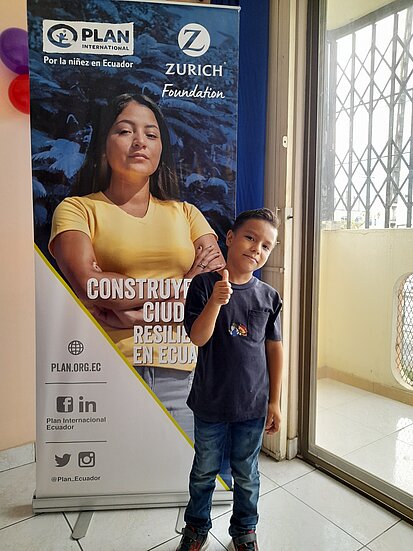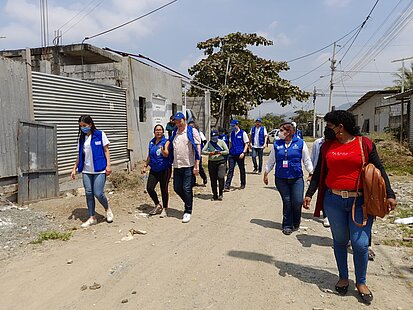Plan International (Plan) and Z Zurich Foundation (the Foundation) partnered to prepare vulnerable communities to better respond to emergencies or disasters in the provinces of Guayas and Manabí through the project "Building Resilient Cities in Ecuador." The project aims to strengthen resilience to flood risk by improving skills and knowledge in Disaster Risk Management (DRM), particularly among girls, boys and adolescents.
Ecuador is considered a high-risk country due to its geographic disposition and social and economic vulnerability, among other reasons. Significant natural and man-made emergencies to which the country is exposed are some of the reasons why humanitarian assistance and risk management projects are needed.
The Foundation, charitable entity of Zurich Insurance Group, is dedicated to supporting projects that address social and environmental challenges. Its focus areas include adapting to climate change, resilience, sustainable development, social inclusion, and education. Through its initiatives and partnerships, the Foundation works to address critical issues and contribute to the well-being of communities around the world.






